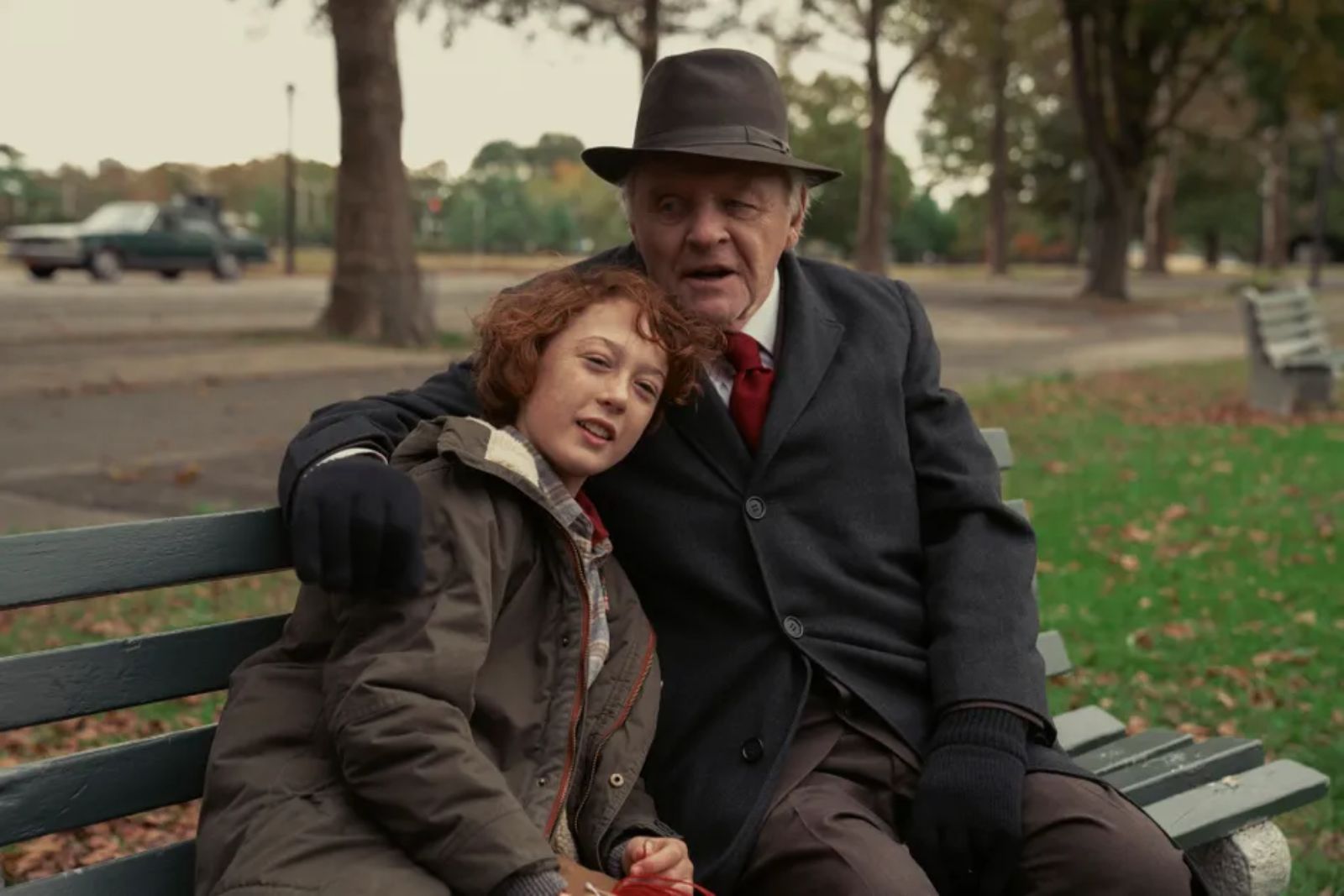Armageddon Time is the sort of film usually invoked as a “portrait of the nation” or “state of the union address,” something taking the temperature of a country—most likely the United States—at a particular time in history. But it’s also a work that makes self-consciousness a virtue: its wonderful writer-director, James Gray, is informed up to his eyes about the virtues and pitfalls of films like these, and here makes something so idiosyncratically his own but that audiences and critics might still mislabel with one of those aforementioned ideas.
It finds the specific in micro-gradations of the specific rather than suggest one family’s struggle represents anything more than itself. It’s a deeply observed New York story airing a middle-class Jewish family’s dirty laundry for all to see. The relevance of bringing up these more symbolic family struggles (also present in a certain mode of American literary fiction, e.g. Philip Roth and John Updike) is this: Armageddon Time could well be one in a lesser guise, but what the film, in its sometimes-awkward yet deeply sincere way, is about is realizing the limits of one’s perception, or of how a self-portrait disregards the wider world beyond its frame.
A more cynical read could see Armageddon Time as the most grandiose “checking of one’s privilege” imaginable, a critique of the white American middle class that still owes its very existence to it. This comes from a bifurcated structure placing the inner workings of a family closely based on Gray’s own—all their private joys and despairs—alongside the close friendship of that family’s youngest son with a Black boy at his school, through whom he learns just how sharp the spike of discrimination can be.
From James Gray comes the similarly syllabled Paul Graff, a sixth-grader avatar charmingly played by Banks Repeta. Anne Hathaway and Jeremy Strong are his parents Esther and Irving, one working as a home ec teacher, the other an engineer. Most significantly we have Anthony Hopkins as grandpa Aaron, almost a surrogate parent figure who offers equal love but far more warmth and accessibility to young Paul.
Jaylin Webb is Johnny, who Paul strikes up a fast friendship with, first introducing one another to their favorite music, that great social lubricant—the Beatles’ Red and Blue compilations are exchanged for recommendations of early New York hip-hop like Kurtis Blow and the Sugarhill Gang. (This doubles as a wonderful pop-cultural capsule of the dawn of Reaganism.) Soon they’re further united by a taste for mischievous schemes and adventures: the fallouts and consequences of a shared joint in the school toilets show Paul, in terms that seem justified by the film’s underlying sense of anger, just how royally fucked-up America is.
This is an America that pre-emptively justifies Bernie Sanders’ famous statement that the system is rigged. Where the bureaucracies of the public school system entrench racial hierarchies. Where Reaganite (or Trumpian) capitalist self-help mantras seep into the collective unconscious like propaganda. And where, in one of Armageddon Time‘s boldest moves, a family like the Graffs, who’ve undergone discrimination of their own, can be so oblivious of their own racism.
To use another cliché: life comes at Paul Graff very fast. Armageddon Time is a quietly seething work, funnier and lighter than anything Gray has made to date, but undergirded with mournful tragedy. Rather than over-sentimentalizing this archetypal, immigrant-derived East Coast American family, some of the best (and predominantly the worst) of America alarms its peace like a football hurled through a living room window.
Armageddon Time premiered at the Cannes Film Festival and will be released by Focus Features.

